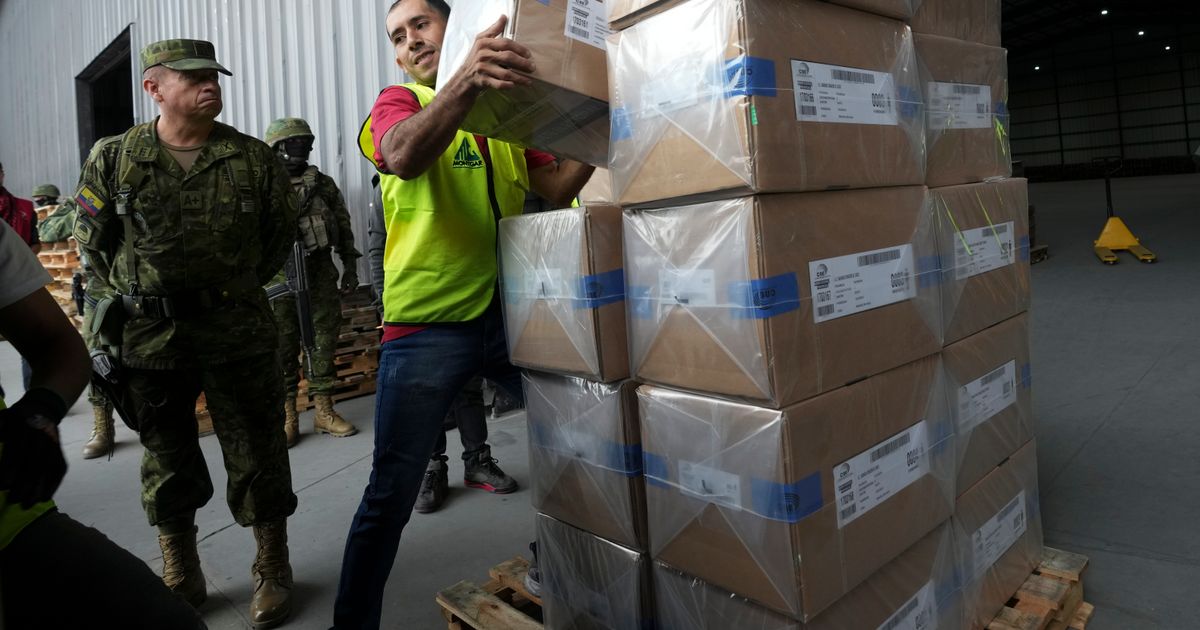Back at my favorite watering hole, I turn away from the newspaper article I�m reading about the assassination of a presidential candidate in Ecuador and glance at the mirror across the bar. The face that stares back at me...

Back at my favorite watering hole, I turn away from the newspaper article I�m reading about the assassination of a presidential candidate in Ecuador and glance at the mirror across the bar. The face that stares back at me raises his beer mug. It�s my old friend, Juan.
�Ah hah,� he says. �I see you�re reading that article.� He shakes his head sadly. �How tragic.�
�Yeah. You know I�m taking a group to the Achuar in the Amazon rainforest of Ecuador in January �24 and another to the Maya of Guatemala. I�m worried that some people may be scared off by these reports.�
�They shouldn�t be,� he shot back quickly.�
�Why not?�
�Really, John?� He stares at me through the mirror. �Come on, you know the people being killed in those countries are the ones engaged in narco-trafficking, reporting on it, or exposing corrupt politicians.�
I don�t see where Juan is going with this. �Well, that�s terrible.�
�Of course, it is. But it�s no reason for tourists to be afraid.�
I glance at my paper, then back at him.
�Look,� he says, �if there�s a scary place in the world for average people it isn�t either of those countries.�
�Where then?�
He snorts. �Well, you might not want to visit the Ukraine right now.�
�Or Russia.�
�Da.� He laughs. �But in Russia tourists don�t have to worry, because there aren�t any.� He wags a finger at me. �Tell your friends that the US is more dangerous than either Ecuador or Guatemala. Here it�s indiscriminate. You don�t have to be a politician, journalist, judge, or corruption-fighter. You just have to walk into the wrong school, church, bar, and any other public place at the wrong time.�
�Wasn�t there a mass shooting in Norway recently?�
�You�re right, other countries have experienced mass shootings too. Norway, Canada, Australia, and Russia to name a few. But those shootings are outliers and afterwards all these countries enacted much stricter gun control laws. The US is the only one that experiences mass, indiscriminate killings year after year, and does little to stop it.�
He gives me a pensive look, raises his mug to his lips, and takes a generous swig. �And incidentally, you might want to ask your friends why countries like Ecuador and Guatemala suffer from such assassinations.�
�You already said it was because of drugs.�
�Yeah, but who�s buying the drugs?�
I stare at him. �You mean. . .� I hesitate to say it.
�You got it. We here in the good ole US of A. We�re the market. You�re an economist. Remember about supply and demand? Well, the demand is here. The supply comes from there. A journalist I know in Ecuador says the only way to stop the drug cartels is to stop the demand in the US. He claims that for so much of the stuff to get across US borders there�s got to be corruption here � at pretty high levels, among customs, border patrol officials, and the DEA.�
�Like prohibition back in the �20s.�
�Same sort of scenario. But, let me ask you: why do you take people to the Achuar and Maya anyway?�
�Because those cultures have so much to teach us.�
�Like what?�
�Well, the Achuar live by a philosophy and lifestyle that most humans � all our ancestors � lived by for a couple hundred thousand years, that we are a part of, and subservient to, nature. Our current philosophy and lifestyles are the opposite. We see ourselves as apart from nature and that we have the right to exploit her any way we want in order to accumulate more and more materialistic things.�
�Human supremacy.�
�Yes. As for the Maya: They did to themselves and their part of the world what we�re doing to the entire planet. Their power-hungry kings demanded bigger pyramids and larger cities. The people paid heavy taxes, in the form of agricultural produce, pottery, jewelry, textiles, and other goods. They cut the forests and drained the swamps. The rains stopped. The wells dried up. Crops failed. Cities fought each other over declining resources. Eventually, sometime around 900 AD, the people abandoned those magnificent cities and retreated into the forests and up to the mountains where their descendants live today. The cities disappeared, covered by trees, dirt, and undergrowth, not to be discovered by the outside world until the mid 1800s. Today, they invite us to come and learn from their history, seeing what happened to their ancestors as a warning for us today.�
�So, they hope they can convince us not to repeat the mistakes their ancestors made?�
�That�s it. And one of the most important teachings from both cultures is that perception molds reality. There are no countries, no religions. No cultures, no corporations. Not until enough people perceive them and then take the actions that bring them to life.� I stare into the mirror.
Juan gives me a pensive look. �So, when we perceive success as having bigger pyramids and more materialistic things, we end up changing the climate and taking ourselves to the brink of self-destruction.�
�Precisely. The alternative is to perceive success as creating long-term benefits for people and nature.�
He lifts his mug. �I see a connection with the US perception that its drug problem is caused by Latin American countries instead of by its own failure to cut back on demand.� He takes a drink. �Always easier to blame others than accept responsibility for your own inadequacies.� He sets the mug back onto the bar. �I�m really glad you take groups to Ecuador and Guatemala. I can see how that may change their lives.�
�I�ve been doing it since the 1980s, a couple thousand people in total, even though I don�t take more than fifteen on any one trip. I�ve heard from a great many of the participants that the trip changed their lives for the better. It helped them understand that climate change and the other crises we�re experiencing are gifts, messages telling us to change. They come back inspired to play a larger role in changing the perceptions that cause the problems. They feel empowered to take whatever actions are most appropriate for them as individuals to create a new reality.�
Juan raises his mug. �To the Achuar and Maya.�
I raise mine. �Here�s to learning from the lessons of history.� The mugs meet in the space between my hand and the mirror.
If you�d like to learn more about joining John in Ecuador or Guatemala this winter, click here.
















